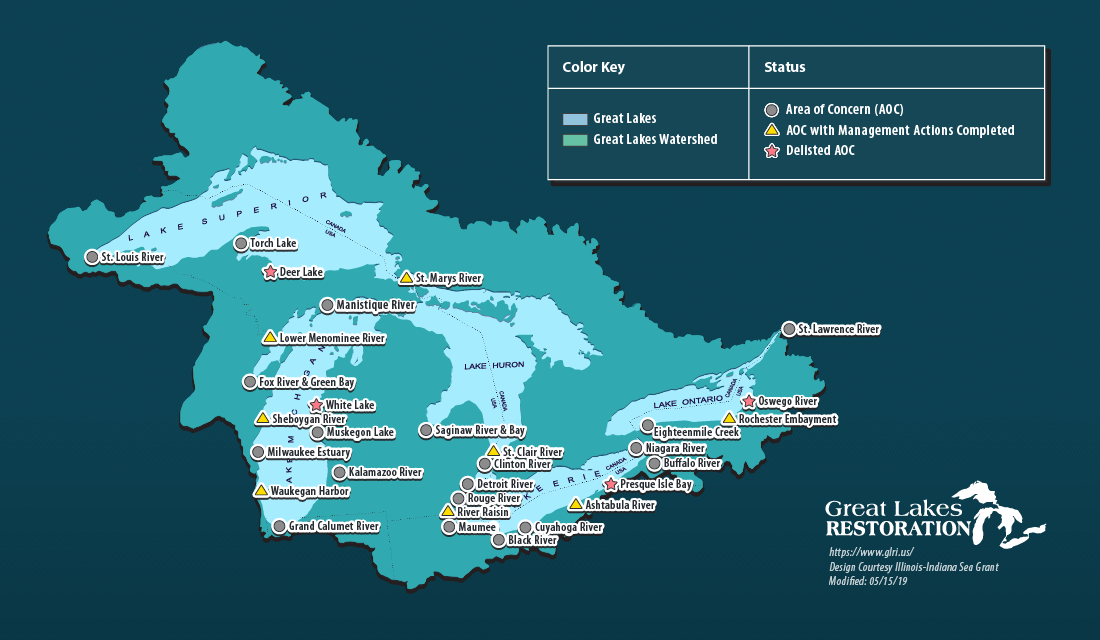
We all know the Great Lakes are big and beautiful, but you may not know that after decades of industry along their shores, many communities in the region have been left with polluted waterways and degraded waterfronts. Now that much of this manufacturing activity is gone, many of these Areas of Concern are being cleaned up through federal, state and local partnerships. Much of this work is funded through the Great Lakes Restoration Initiative.
Recently, National Geographic photographer Peter Essick spent some time documenting the sights, the people and the work taking place in these locations. These striking images provided an opportunity for the Great Lakes Sea Grant Network to tell some stories of restoration, revitalization and revival in this collective photo essay called Great Lakes Resurgence: Cleanup Efforts Bring Life to Local Waterfronts.


